
High blood pressure, or hypertension, is often referred to as the "silent killer" because it can quietly cause significant damage to the body over time, often without noticeable symptoms. This condition affects millions of people globally and is one of the leading causes of cardiovascular diseases and other serious health problems. Understanding the dangers of high blood pressure and its effects on various organs is crucial for both prevention and management.
Damage to the Arteries
The arteries, which are responsible for carrying blood from the heart to the rest of the body, are particularly vulnerable to the effects of high blood pressure. When blood pressure is consistently high, it exerts excessive force against the walls of the arteries. Over time, this can lead to the development of arteriosclerosis, a condition characterized by the thickening, stiffening, and narrowing of the arteries. Arteriosclerosis significantly impairs blood flow, making it difficult for oxygen-rich blood to reach vital organs and tissues.
In addition to arteriosclerosis, high blood pressure can also lead to the formation of aneurysms, which are abnormal bulges in the walls of arteries. These bulges can rupture, causing life-threatening internal bleeding. The damage to the arteries caused by hypertension increases the risk of heart attack, stroke, and peripheral artery disease, which can lead to severe complications and even death if not properly managed.
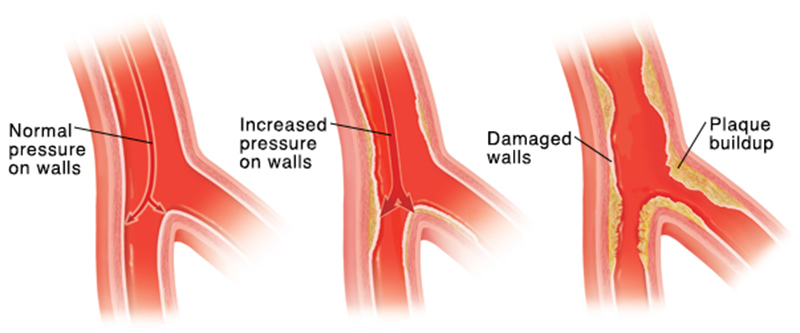
Damage to the Heart
The heart is the central organ of the circulatory system, and high blood pressure can have a profound impact on its function. When the heart has to pump blood against increased resistance in the arteries, it must work harder. This extra effort causes the heart muscle to thicken, a condition known as left ventricular hypertrophy. While a thicker heart muscle might seem like it would be stronger, it actually becomes less efficient and more prone to fatigue.
Over time, the excessive strain on the heart can lead to coronary artery disease, in which the arteries that supply blood to the heart muscle become damaged or blocked. This can result in angina (chest pain) or, more seriously, a heart attack. If left untreated, the continuous pressure on the heart can eventually lead to heart failure, a condition where the heart can no longer pump blood effectively to meet the body's needs. Heart failure is a chronic and progressive condition that significantly reduces quality of life and can be fatal.
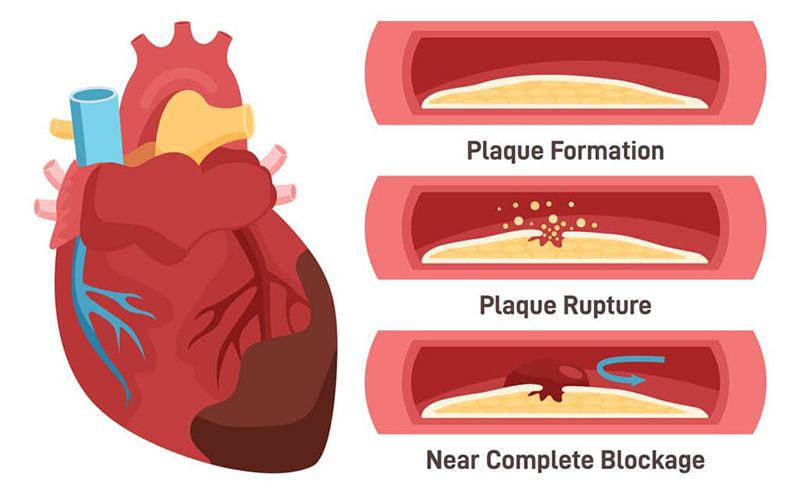
Damage to the Brain
The brain is highly dependent on a steady supply of oxygen and nutrients delivered by the blood. High blood pressure can disrupt this supply by damaging the blood vessels in the brain, leading to serious and potentially irreversible consequences. One of the most significant risks associated with hypertension is the increased likelihood of stroke. A stroke occurs when a blood vessel in the brain either becomes blocked (ischemic stroke) or ruptures (hemorrhagic stroke), leading to a sudden loss of blood flow to a part of the brain. This can result in permanent brain damage, disability, or death.
Moreover, hypertension is a major contributor to vascular dementia, a condition characterized by cognitive decline due to impaired blood flow to the brain. Vascular dementia can affect memory, thinking, and reasoning, severely impacting daily life and independence. In some cases, high blood pressure can also lead to transient ischemic attacks (TIAs), often referred to as "mini-strokes," which are temporary interruptions in blood flow to the brain. Although TIAs do not cause permanent damage, they are often a warning sign of a future stroke.
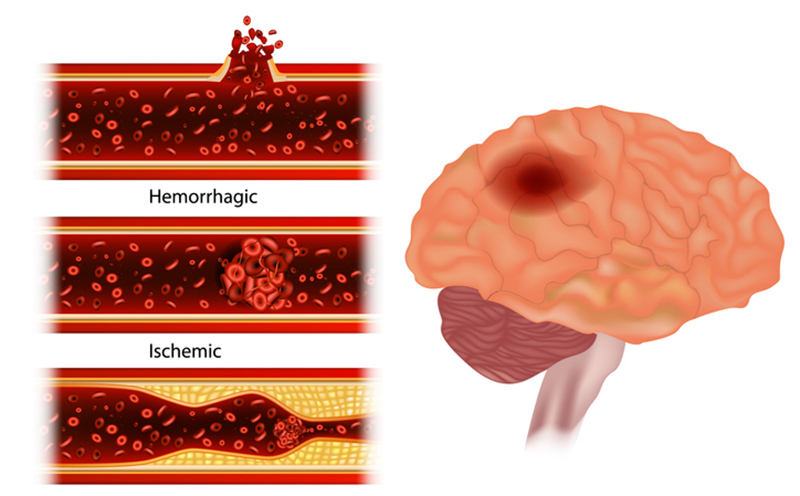
Damage to the Kidneys
The kidneys play a critical role in filtering waste and excess fluids from the blood, maintaining a balance of electrolytes, and regulating blood pressure. However, they are particularly vulnerable to the effects of high blood pressure. When blood pressure is elevated, it can damage the delicate blood vessels within the kidneys, leading to a condition known as nephropathy, or kidney disease.
Over time, hypertension can cause the kidneys to lose their ability to filter blood effectively, resulting in the buildup of waste products and fluids in the body. This can lead to chronic kidney disease (CKD), a progressive condition that can eventually result in kidney failure. When the kidneys fail, dialysis or a kidney transplant becomes necessary to sustain life. Furthermore, kidney damage from hypertension can create a vicious cycle, as impaired kidney function can further elevate blood pressure, worsening the overall condition.
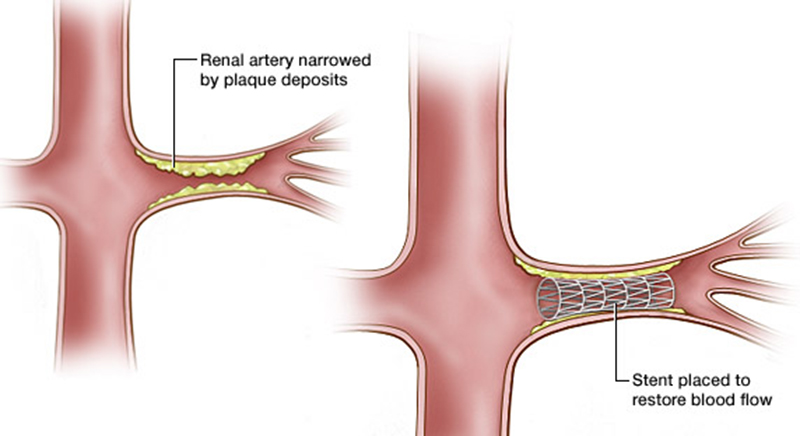
Damage to the Eyes
High blood pressure can also take a toll on the eyes, leading to a condition known as hypertensive retinopathy. The eyes are equipped with a network of tiny blood vessels that are essential for maintaining vision. When blood pressure is too high, it can cause these vessels to become damaged, leading to a variety of eye problems.
Hypertensive retinopathy can cause symptoms such as blurred vision, double vision, and in severe cases, vision loss. In addition to damaging the blood vessels in the retina, high blood pressure can also lead to the development of other eye conditions, such as macular degeneration and glaucoma. These conditions can further compromise vision and, if left untreated, may result in blindness.
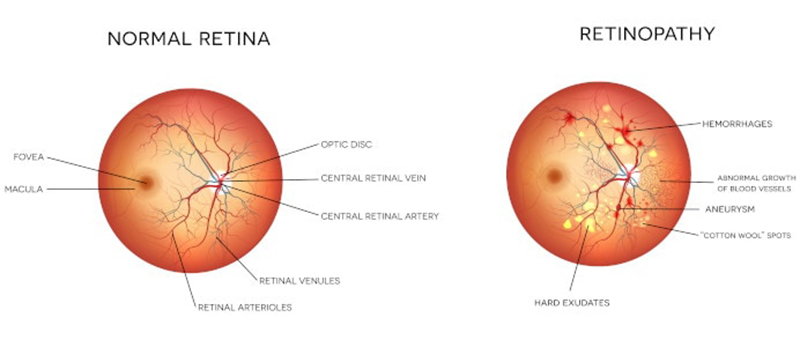
Sexual Dysfunction and Conditions
Sexual health is another area where high blood pressure can have a significant impact. In men, hypertension is a leading cause of erectile dysfunction (ED), which is the inability to achieve or maintain an erection sufficient for sexual intercourse. This occurs because high blood pressure can damage the blood vessels that supply blood to the penis, making it difficult to achieve the necessary blood flow for an erection.
In women, high blood pressure can also lead to sexual dysfunction, including reduced libido, difficulty achieving orgasm, and vaginal dryness. The reduced blood flow and damage to the arteries caused by hypertension can impair sexual arousal and satisfaction, leading to strained relationships and decreased quality of life.
High blood pressure is a multifaceted condition with far-reaching effects on nearly every part of the body. From the arteries to the heart, brain, kidneys, eyes, and even sexual health, hypertension can cause severe and potentially life-threatening damage if not properly managed.
Regular monitoring of blood pressure and early intervention are crucial in preventing the damaging effects of hypertension. By taking proactive steps to manage blood pressure, individuals can protect their health, improve their quality of life, and reduce the risk of serious complications. A valuable tool for this is a professional home blood pressure monitor, such as the Pangao PG-800B53. This model offers a range of features designed for ease of use and accuracy, including dual user memories for separate tracking, guest mode for temporary readings, live voice guidance for clear instructions, a 3-check mode for averaging results, a movement indicator to ensure accurate measurements, and a cuff fit indicator to confirm proper placement. Pangao BP machine PG-800B53 empowers you to monitor your blood pressure consistently and accurately. Regular use of this device can help you detect any changes in your blood pressure early, allowing for timely intervention and better management of hypertension, helps you manage your health from the comfort of your home.
Subscribe means that you have read and agree to the Privacy Policy.
Subscribe means that you have read and agree to the Privacy Policy.
Copyright © Shenzhen Pango Medical Electronics Co.,Ltd, Ltd. All Rights Reserved.